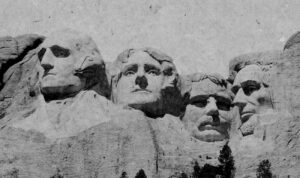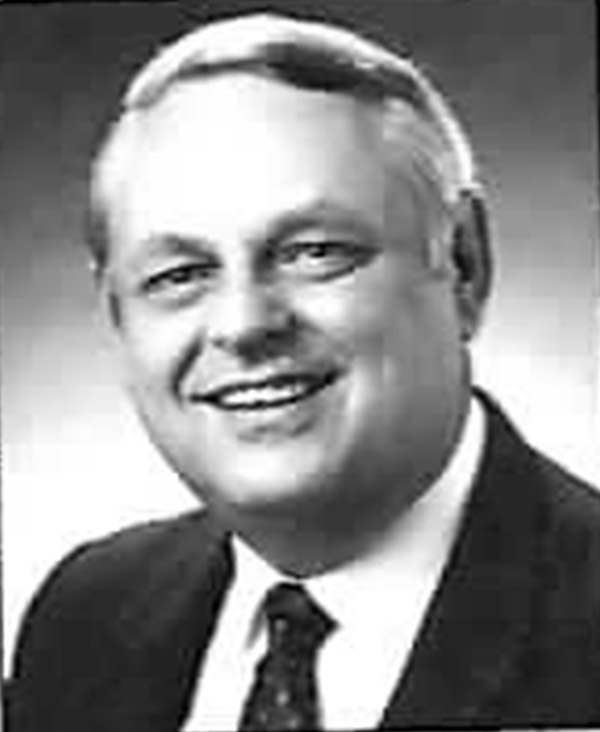
By Art Farstad
February is a presidential month for historically minded Americans. And rightly so. Our first and truly great president, George Washington, was born in February (Feb. 11, 1732, “Old Style” calendar, Feb. 22 “New Style”). So too was Abraham Lincoln, perhaps our greatest and most beloved president of all (Feb. 12, 1809). Their respective birthdays have been holidays in most states–or at least one of them was. Now it’s “Presidents Day”–and it’s supposed to include all of the presidents.
The office of President of the United States has become a very powerful one. People are influenced (no matter how much they may complain and deny it) by what these men—some great, some weak, and some mediocre—say and do.
The Grace Evangelical Society is interested in God’s Word—its teachings, and its application to everyday life. A very large percentage of U.S. presidents, whether definitely known to be believers or not, have said and written some very worthwhile things about our favorite Book.
I have chosen remarks on the Bible from a handful of presidents during the three centuries in which there have been presidents of the United States.
Eighteenth Century
The first president, George Washington, in office from 1789 through 1797, said, “Above all, the pure and benign light of Revelation has had a meliorating influence on mankind, and increased the blessings of society.”
Nineteenth Century
John Quincy Adams, president from 1825 to 1829, said, “The first and almost the only book deserving of universal attention is the Bible. I speak as a man of the world… and I say to you, ‘Search the Scriptures.’” Upon hearing a man defaming God’s Word, Andrew Jackson, president from 1829 to 1837, rebuked him with the following well-chosen words: “Sir, that Book is the Rock on which our Republic rests!” Abraham Lincoln, president from 1861 to 1865, had devout Christian parents but apparently didn’t become a believer till the darkest days of the Civil War. As a boy he read the Bible so much that his style was ever after heavily influenced by the King James Version. The following quotation is no doubt from the period before he found his faith: “I am profitably engaged in reading the Bible. Take all of this book upon reason that you can and the balance by faith, and you will live and die a better man.” Ulysses S. Grant was a man of integrity. As he was dying of cancer he wrote his memoirs, not for prestige, but so as not to leave his family in debt. He finished in time; the royalties saved the family from financial ruin. Grant, who was president from 1869 to 1877, wrote: “Hold fast to the Bible as the sheet anchor of your liberties; write its precepts on your hearts and practice them in your lives. To the influence of this book we are indebted for the progress made, and to this we must look as our guide in the future.”
Twentieth Century
President William McKinley, president from 1897 to 1901, was a genuine believer in Christ. His words are sorely needed by our currently Biblically illiterate, “Christian-bashing” culture: “The more profoundly we study this Book and the more closely we observe its divine precepts, the better citizens we will become and the higher will be our destiny as a nation.” Theodore Roosevelt, president from 1901 to 1909, said, “Almost every man who by his lifework added to the sum of human achievement of which the race is proud, of which our people are proud, almost every such man has based his life-work largely upon the teachings of the Bible.” It was Herbert Hoover’s misfortune to be presiding over the nation when the great stock market crash took place, though he was not responsible for it. Hoover, during his presidency from 1929 to 1933, did much to help the world’s needy between the World Wars. He said, “Whether it be of the law, business, morals, or that vision which leads the imagination in the creation of constructive enterprises for the happiness of mankind, he who looks for guidance in any of these things may look inside its covers and find illumination.” We have read just a few presidential quotations—powerful men speaking of the powerful Book. If we had more space the list could be augmented at least fourfold.
Since our newsletter has British Commonwealth readers as well as U.S., let’s have a royal quotation for our Canadian and other Commonwealth friends:
King George V, who ruled from 1910 to 1936, said words that are greatly needed in the British world today: “It is my confident hope that my subjects may never cease to cherish their noble inheritance in the English Bible, which, in a secular sense, is the first of national treasures and is, in its spiritual significance, the most valuable thing that this world affords.”
Having dealt with men of power sufficiently, I would like to close with a few lines from one of North America’s finest men of poetry:
We search the world for truth, we cull
The good, the pure, the beautiful,
From graven stone and written scroll,
From the old flower-fields of the soul,
And, weary seekers for the best,
We come back laden from our quest,
To find that all the sages said
Is in the Book our mothers read.
—John Greenleaf Whittier (1807-92).
____________________
Art Farstad earned a Master of Theology in Old Testament and a Doctor of Theology in New Testament from Dallas Theological Seminary, where he also taught Greek for five years. He was the editor of the New King James Version, the New Scofield Study Bible, and the Journal of the Grace Evangelical Society. He passed in 1998.
__________
1 This article originally appeared in the February 1992 issue of The Grace Evangelical Society News, a four-page newsletter.




